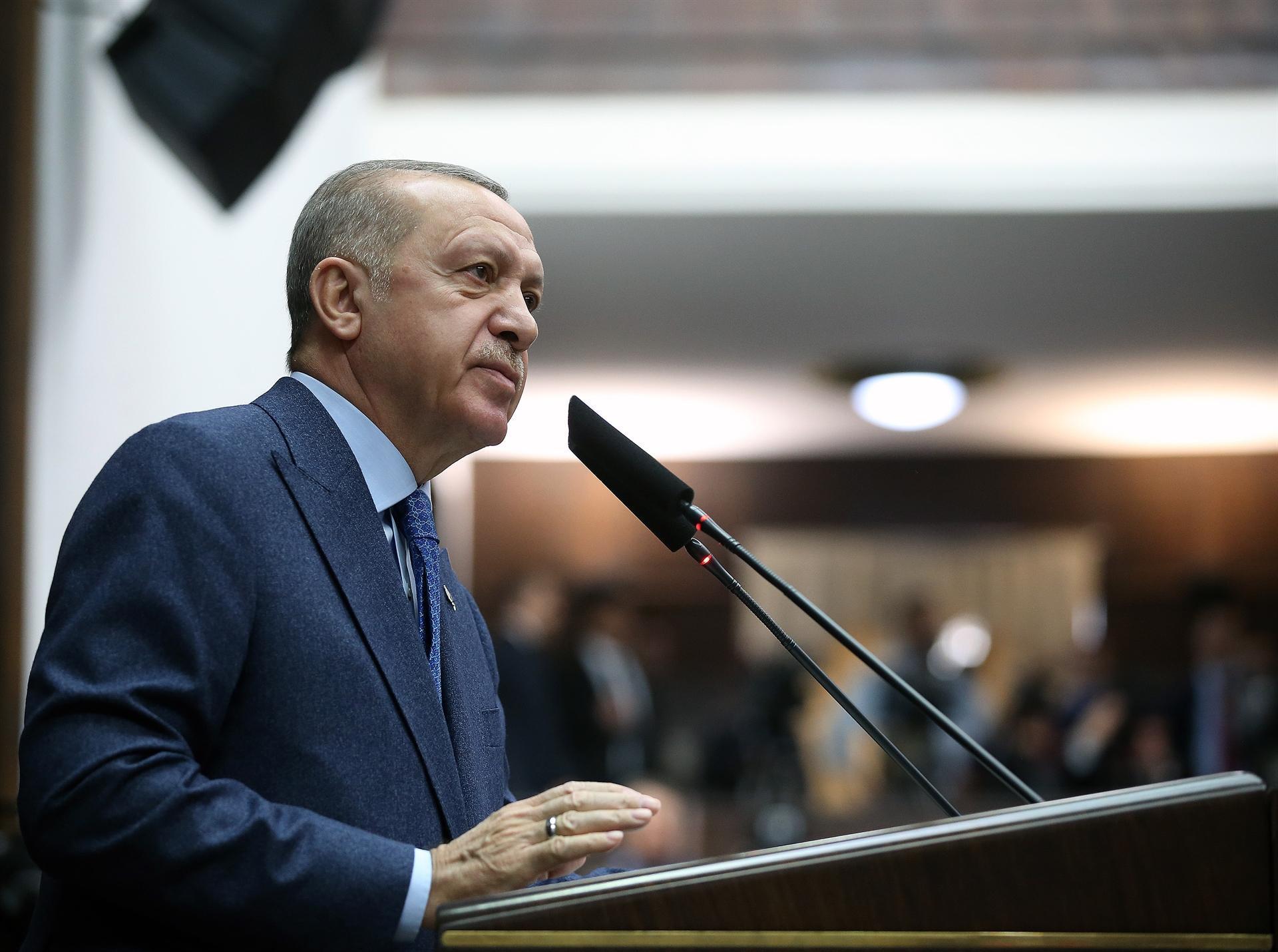
DHA Photo
Turkey will respond heavily if the cease-fire with Russia is violated in northwestern Syria’s Idlib, President Recep Tayyip Erdoğan said on March 11.
If the relevant parties of the Moscow deal violate the deal, Turkey will “never avoid going over them heavier than before,” Erdoğan said at the parliamentary group meeting.
“Turkey will do more than mere retaliation if its observation posts in Idlib are targeted,” he emphasized.
“We are closely monitoring the deployment of the Assad regime and allied militants near the cease-fire lines,” he said, stressing that Turkey will abide by the cease-fire deal so long as the Assad regime and its allies do the same.
The attack attempts of the PKK members in the Tel Rifat region have also increased gradually, he said.
“We will stand against both the terror group [YPG/PKK] and sectarian regime forces,” he said, adding that Turkey will not get caught in another vicious cycle of terror that has claimed tens of thousands of lives in Turkey already.
Turkey agreed on temporary cease-fire and related agreements, not because it cannot afford to the regime or terrorist organization, but to find reasonable and practical solution for all parties to the crisis in Idlib.
Turkey does not aim to occupy or annex any territory of Syria or fight any power in the region, but only seeks to ensure the security of its territories and protect millions of people in Idlib who lived under the threat of massacres, the president stated.
Erdoğan said that in its operation in northwestern Syria, Operation Spring Shield, Turkey had the chance to test the capabilities of its defense industry, including armed drones, voicing his confidence that Turkey is ready to fight greater threats.
Turkey launched Operation Spring Shield on Feb. 27 in the region after at least 34 Turkish soldiers were martyred in an Assad regime airstrike in Idlib, and after repeated violations of previous cease-fires. Under a 2018 deal with Russia, the Turkish troops were in Idlib to protect civilians from attacks by the regime and terrorist groups.
Erdoğan said last week’s cease-fire in Idlib was achieved following Turkey’s military campaign there, giving Idlib residents the opportunity to live free of threats, adding that Turkey is closely watching developments on the ground.
Under the cease-fire deal in Idlib, located just south of the Turkish border, all military activities are to end there, along with the establishment of a security corridor 6 kilometers to the north and south of the key M4 highway.
Joint Turkish-Russian patrols will also begin on March 15 along the highway from the settlement of Trumba – 2 km to the west of Saraqib – to the settlement of Ain al-Havr, under the deal.
Erdoğan said a permanent solution to the Syria crisis should be in line with the country’s territorial integrity, but this is not possible while one-third of the country is occupied by the terrorist YPG/PKK.
“I believe Syria will enter [a period of] stability with a new constitution and free elections,” he said. “With our full strength and sincerity, we will support every step [in Syria].”
Erdoğan also criticized Greece’s violations of human rights towards asylum seekers at its borders. “There is no difference between what the Nazis did and those in video footage from the Greek border,” he said.
“Opening fire on innocent people who have no aim besides saving their lives and providing a better future for their children ... is barbarism in the full sense of the word,” he noted.
He also blasted the European Union’s attitude towards Turkey on the refugees.
“We don’t want any aid from anyone, we’re also not begging for someone. Our only demand is that the EU keeps its pledges made to our country,” he said.
Turkey will carry out its current border policies at the borders until its expectations are concretely meet on the opening of chapters on free movement, updating the customs unions, and financial support,” he added.
Late last month, Turkey said it would no longer try to block asylum seekers from trying to reach Europe via land routes.